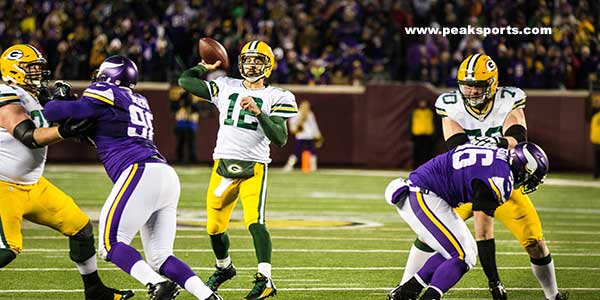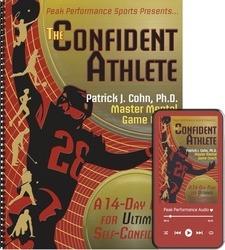
Creating a Plan for Improvement
Harsh criticism hurts an athlete but the effect of harsh criticism is doubled when it comes from within the athlete’s mind.
Harsh self-criticism is the quickest way to shatter confidence.
Many times, athletes describe themselves as being their own biggest critic. This mindset is viewed by some in a positive light meaning that this type of athlete pushes to be perfect and nothing less is sufficient.
Unfortunately, harsh self-criticism becomes an endless loop of negative self-talk that pulls an athlete downward rather than lifting up their performance to new standards.
Harsh self-criticism never pushes an athlete towards excellence. Harsh self-criticism sends the message that you are not good enough and, no matter what you accomplish, that is not good enough either.
Even professional athletes can be highly self-critical… Take for example Washington Redskins wide receiver Cam Sims. Sims admits he is his own biggest critic.
Sims was a 2018 undrafted rookie free agent out of the University of Alabama and was signed by the Redskins prior to training camp last year. Sims has the size and ability to play in the NFL which is the reason Sims made the 2018 Redskins’ 53-man roster.
Sims injured his ankle in the first regular season game in 2018 which ended his season, and now Sims is battling just to make the 2019 squad.
Sims has been highly-critical of his play this preseason rating his performance in preseason as “bad.”
SIMS: “If I drop a pass I will say that my whole day is bad and if I catch 100 balls and I drop that one pass I would say my whole day is bad.”
When you are a perfectionist and have high expectations, your performance is never good enough, which only hurts confidence. When the goal becomes perfection, you lose sight of the main objective in sports.
The slightest mistakes overshadow any progress or success. The truth is that harsh self-criticism sends a negative message to yourself that hurts athletic production.
Assessing your performance requires some degree of objectivity.
Although you cannot be fully objective, you can step back from your performance and take a look at potential ways to improve your play rather than demoralize yourself by highlighting all your mistakes.
The 3 Components of Objectivity:
- Credit – What did you do well? There are always some positive takeaways from every performance. Give yourself credit for those successes, even minor ones.
- Misses – What didn’t go well? This requires the greatest amount of restraint and objectivity. Refrain from berating yourself and look at your performance through a coach’s eye.
- Plan – What do you need to do differently to improve? Knowing what you did wrong is no help if you don’t have a plan to improve those aspects of your game.
You don’t need to be excessively critical of yourself to improve your athletic performance–You just need a plan for improvement.
Avoiding Harsh Self-Criticism:
Treat yourself like you would treat a best friend teammate. When a teammate asks you about their performance, you wouldn’t berate or belittle them.
Be objective when evaluating your performance. Treat yourself with the same respect as you would your teammate.
Ask yourself: “What would the most positive coach or teammate tell me in this moment?” This question will help you step outside of the emotion and be more objective with your game.
Related Sports Psychology Articles
- Athletes Who Are Self-Critical
- Helping Athletes Overcome Self-Critical Behavior
- How Athletes Can Manage Expectations
*Subscribe to The Sports Psychology Podcast on iTunes
*Subscribe to The Sports Psychology Podcast on Spotify
Download a free sports psychology report to improve your mental game!
Learn more about our one-on-one mental game coaching.
The Confident Athlete

“The Confident Athlete” consists of 2 audio programs that include 14 days of confidence fueling exercises and a simple to follow workbook that guides you through the 14 days, helps you apply the strategies, and customizes the exercises to your personal needs.
Let me help you put a stop to the confidence leak. You can learn to have greater levels of confidence in competition than you do in practice by identifying the specific ways you undermine your own confidence and how to convert your practice confidence into COMPETITIVE CONFIDENCE.
“The Confident Athlete” is a ground-breaking system to teach you how to think like a champion and have ultimate self-confidence every time you step on the playing field, court, track, or course. The confident athletes was developed for any athlete – junior to professional –that wants to gain confidence. However, coaches and sports parents can learn how to teach others to perform with ultimate confidence. Use my program if you want to bust a slump or just wanting higher or more consistent levels of self-confidence.
